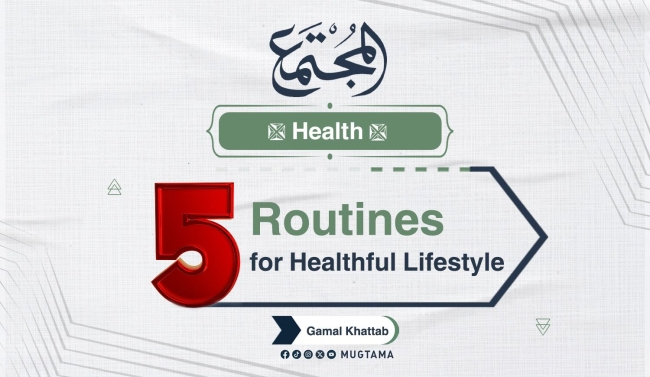Living a longer and healthier life is frequently linked to practices like eating well and exercising regularly. Following multiple trips to the "Blue Zones" by a group of scientists and specialists headed by American researcher Dan Buettner, it was concluded that the key to good health and long life includes factors like "regular physical activity in daily tasks, and predominantly incorporating plant-based foods into diets".
Following data from the Centers for Disease Control and Prevention in late 2021 revealing a "decline in life expectancy in the US to 76.4 years," Dr. Brett Osborn, a neurosurgeon and creator of the Preventive Healthcare and Anti-Aging Center in Florida, emphasized the message "Good health is a priority at any age".
In an interview with Fox News, Osborn explained that he strives to promote the slogan by assisting individuals in reaching a healthy weight, embracing improved health practices, and lowering the likelihood of chronic illnesses like obesity and diabetes.
Five habits you should do every day to live longer:
Osborn discusses 5 daily habits suggested for achieving a longer and healthier life, with a certification from the American Academy of Anti-Aging Medicine.
1- Assuming complete responsibility for your health
Osborn advises keeping a close eye on our bodies "for any early warning signs that could endanger our lives", and cautions against waiting a year for a medical check-up as it could be "a fatal error, with procrastination and neglect potentially leading to death due to significant deterioration within a year or two".
Osborn highlights that the majority of individuals do not take initiative in identifying potential health risks independently, instead opting to wait until they are compelled to see a doctor or turning to the internet for health information.
He stresses the significance of consistently tuning into the body, "to examine for any potential causes of life-threatening illnesses, instead of solely depending on the doctor". He reiterates his advice by stating that doctors cannot predict all early risk factors to prevent heart attacks or strokes, as these diseases silently harm our bodies until they cause death unnoticed due to symptom unawareness.
Osborn confirms that recognizing risk factors is the initial step in preserving life and lowering the chances of heart attacks and strokes. Stating that conducting lab readings is necessary to accurately detect any internal body changes, as it is extremely difficult to do so without them.
2- Important screenings to take seriously:
Osborn recommends five blood tests to detect age-related diseases.
These tests include lipid analysis, which helps determine the ratio of "good" cholesterol to "bad" cholesterol, especially for those with high blood pressure, diabetes, or a family history of heart disease or stroke. Reactive protein C analysis is crucial for those with high levels of reactive protein C, as it is a risk factor for coronary heart disease, high blood pressure, type 2 diabetes, and blood lipid disorders. Homocysteine analysis is important for a range of diseases, including heart attacks, strokes, Alzheimer's, and osteoporosis. Hemoglobin A1c analysis measures blood sugar control over weeks or months, and vitamin D3 analysis is essential for detecting strokes, diabetes, Alzheimer's, coronary artery disease, and cancer. These tests are essential to prevent unexpected health issues and ensure overall well-being.
3- Consume essential dietary supplements
Osborne recommends a range of dietary supplements that he considers no less important than proper nutrition and physical fitness; in terms of improving health, helping to perform strenuous tasks, and reducing age-related diseases. These include omega-3 fatty acids, green tea extract, vitamin D3, curcumin, a vitamin B complex, vitamin C, vitamin E, magnesium, and probiotics.
4- Mental training consistency
Osborne tells us that "learning on the job or critical thinking and engaging in mental challenges and physical exercises; can form neural pathways in the brain and literally reshape it," which helps "maintain brain activity, reduce inflammation, and prevent age-related diseases such as Parkinson's and Alzheimer's." He adds that "there is evidence that increased blood flow to the brain during exercise can produce new nerve cells in the brain, enhancing cognitive learning and memory capacities," and learning a new skill can also "charge" the brain.
5- Strict control of sugar levels
Osborne explains that the glycemic index, which measures the sugar content in our food "is a way to assess the impact of what we eat on blood sugar and insulin, and through it, hidden sugars can be discovered and avoided." For example, this index is 23 in beans, 7 in peanuts, and 89 in white rice; "and the sweeter the food, the higher the glycemic index value." Therefore, Osborne explains that "strict control of blood sugar levels is achieved through consuming low glycemic index foods, a fat-free body mass, and daily exercise." Additionally, "consuming vegetables daily and consuming carbohydrates with a low glycemic index makes weight loss easier and has longevity effects."


